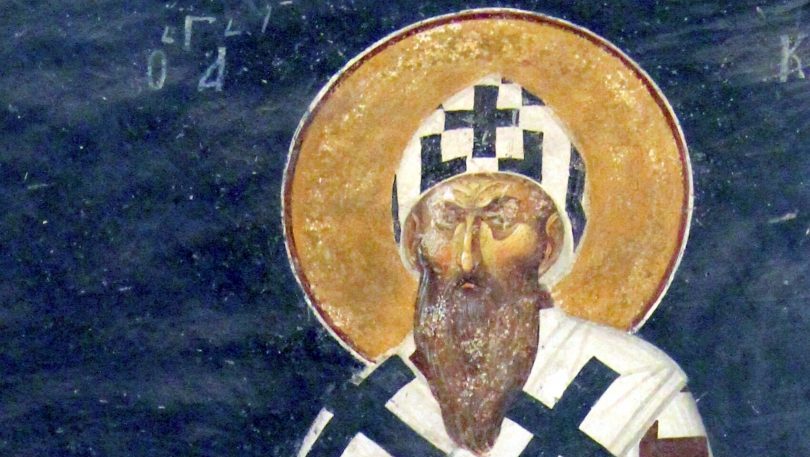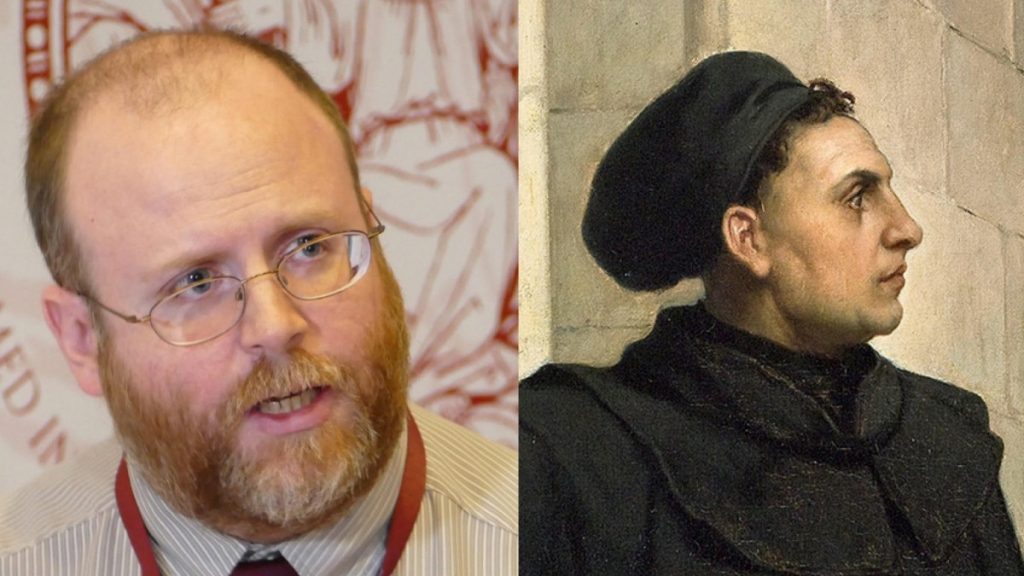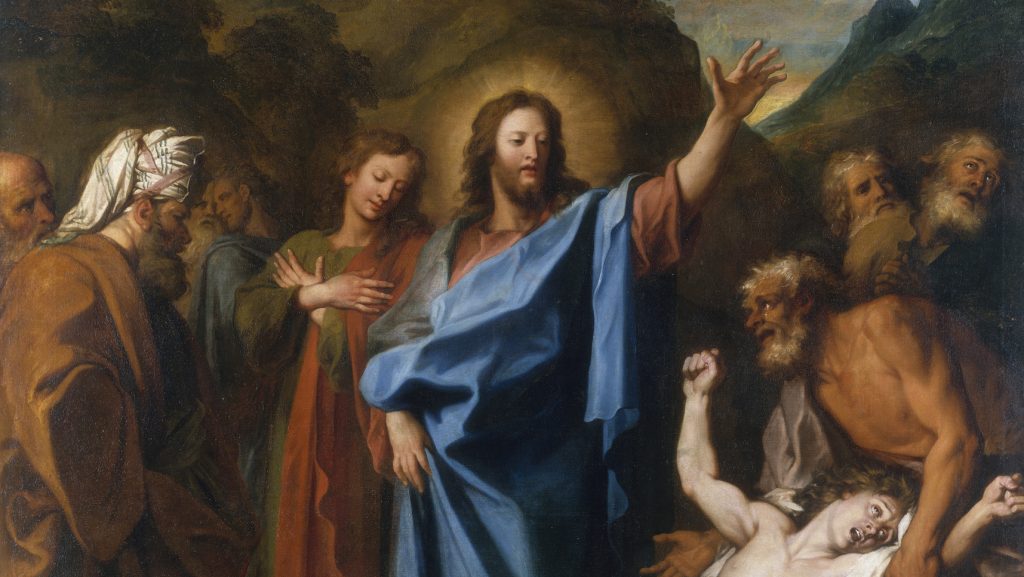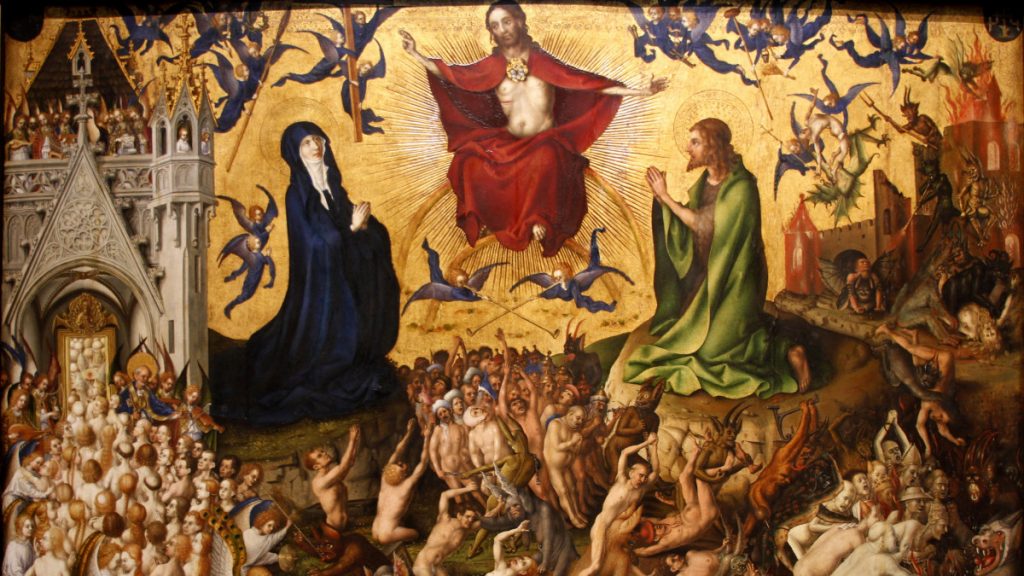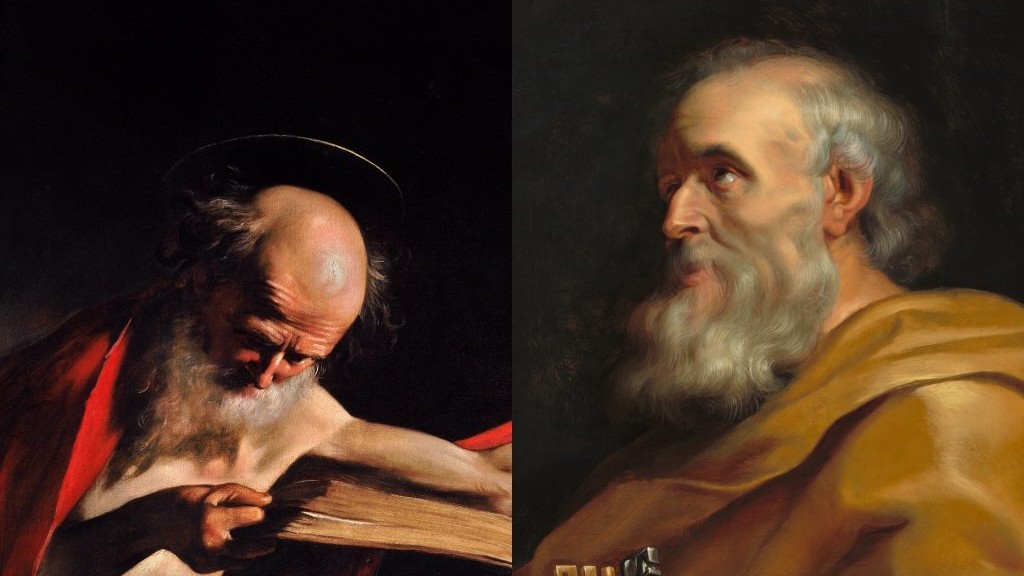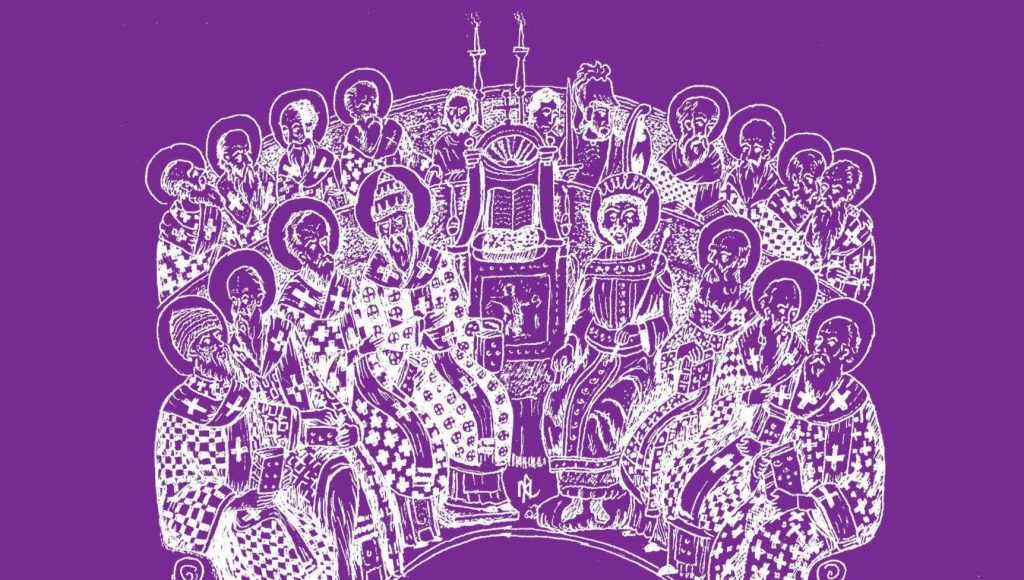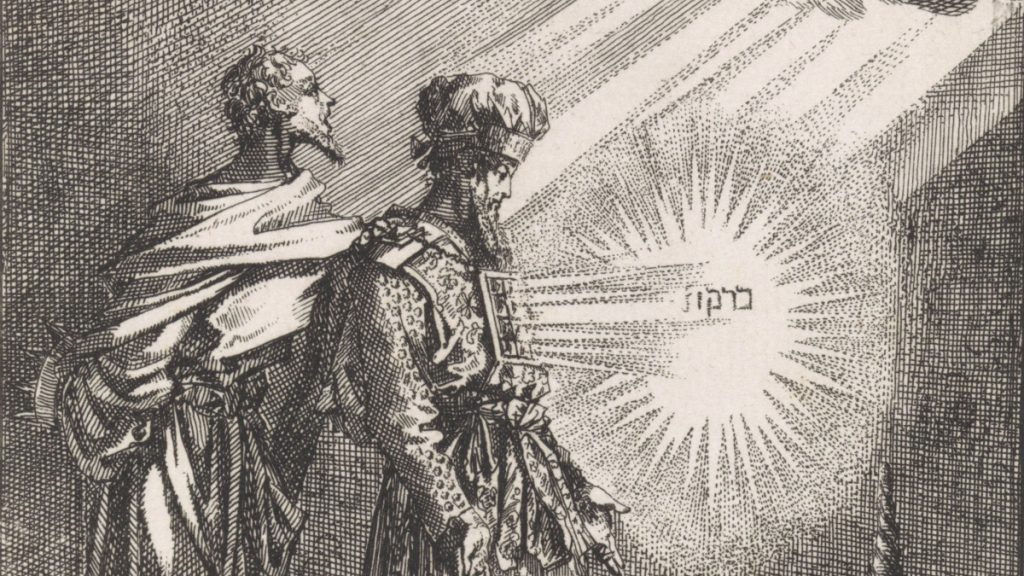(Updated July 13, 2025)
This Author Quote Archive collects pertinent quotes from the Church Father, St. Cyril of Alexandria.
Next to each quote are the Topic Quote Archives in which they are included.
This Quote Archive is being continuously updated as research continues. Quotes marked with “***” have not yet been organized into their respective Topic Quote Archives.
Biblical Commentaries
St. Cyril of Alexandria, Glaphyra on the Pentateuch, Book 11: Leviticus1
Now again observe that, with respect to all its affairs, the church is administered by sacred and divine laws. For those elements that pertain to the sacrifice [the Eucharist] belong to the one who offers it. Everyone who has been brought up under the laws of the church knows what I mean. That the church of God is the especially fitting place for divine ceremonies and that the mystery of Christ is necessarily performed within it, is plainly indicated when to those matters I have spoken of it adds, “It shall be eaten in a holy place, in the court of the tabernacle of witness” (Lev. 6:26).
Now at that time there was only one tabernacle in the wilderness and one temple after that, which Solomon built in Jerusalem. And those who offered sacrifices outside the tabernacle suffered death. For the sacred Scripture says, “A man of the people of Israel who slaughters a calf, a sheep, or a goat in the camp, or who slaughters any of these outside of the camp, and does not bring it to the entrance of the tabernacle of witness so as to present it as a gift to the Lord before the tabernacle of the Lord, blood shall be imputed to that man who has shed blood. That person shall be utterly destroyed from among the people” (Lev. 17:3-4).
Surely then, to wish to reside with ungodly heretics and to cleave to them in fellowship is a lawless act and a profanity under the condemnation of death. For they sacrifice the sin offering [the Eucharist] outside the holy tabernacle [the Catholic Church], and do not perform the sacred offering in the holy place. For the church is one, just like the temple of old, and the tabernacle was also one, showing forth the beauty of the church by way of figures. We, then, will sacrifice the offering for sin in the holy court, as it were, and we will eat holy flesh; that is, we will be sanctified when we partake of the mystical blessing. For the law bears witness to this when it says, “Anyone who touches its flesh will become holy” (Lev. 6:27).
St. Cyril of Alexandria, Commentary on John
- The Sacrament of Holy Orders, and the Authority of the Priesthood | Commentary on 20:21-23
(Commentary on 20:21-23)2
Our Lord Jesus Christ transforms the outline of the law in to the power of the truth when He consecrates through Himself priests of the divine altar. In fact He Himself is the ram of consecration [Lev. 8:23]. He consecrates through true sanctification, making them sharers of His nature through participation with the Spirit and strengthening, as it were, human nature to a power and glory that is superhuman.
Letters to Nestorius
St. Cyril of Alexandria, Third Letter to Nestorius (431)
(§7)3
This too we must add. Proclaiming the death in respect of the flesh of the only-begotten Son of God, that is, Jesus Christ, and acknowledging His return to life from the dead and ascension into heaven, we perform in the churches the bloodless cult, approach the sacramental gifts, and are sanctified by our participation in the holy flesh and the precious blood of Christ the Savior of us all, not by receiving common flesh (God forbid!) nor that of a man sanctified and conjoined to the Word in oneness of dignity or by enjoying divine indwelling, but as the truly life-giving flesh belonging to the Word Himself. For being life by nature as God, when He became one with His own flesh, He made it life-giving, with the result that, although He says to us, “Truly I say to you, unless you eat the flesh of the Son of Man and drink His blood…” (John 6:53) we shall not attribute even this to a human individual like us (for how could human flesh be life-giving of its own nature?) but shall count it as having truly become the very own flesh of the one who became for us, and was accounted, Son of Man.
Letters
St Cyril of Alexandria, Instructions to His Deacon Posidonius4
We too acknowledge that the Word of God is both immortal and life itself, but we believe that he became flesh: that is that, after uniting to himself flesh with a rational soul, he suffered in the flesh according to the scriptures, and when his body suffered, he himself is said to have suffered, even though he is impassible in his nature, and when his body rose again (for “his flesh did not know corruption” (Acts. 2:31)), we say that he himself rose on our behalf. But that man [Nestorius] does not agree with this, but 132 | 133 says that the sufferings were a man’s and the resurrection a man’s, and that in the [eucharistic] mysteries the body that is offered up is that of a man, while we believe it is the flesh of the Word, which has the power to give life, because it has become the flesh and blood of the Word, who bestows life on all things.
This he [Nestorius] refuses to say…
When this attempt failed [by Nestorius to depose a priest who accused him of heresy], he had recourse to something else. For he said, “Why did you hold an unauthorized Eucharist and perform the offering in a house?” And although virtually all the clergy said, “Each of us does this when the occasion and necessity require it,” he issued a decree of deposition against the man.
St. Cyril of Alexandria, Letter 1: To Clergy and Monks in Egypt
(§5)5
Therefore, I am amazed if some should question at all whether the Holy Virgin should be called the Mother of God. For if our Lord Jesus Christ is God, how is the Holy Virgin who bore him not the Mother of God? The inspired disciples transmitted this faith to us, even if they have not made mention of the term. So we have been taught to think by the holy Fathers.
St. Cyril of Alexandria, Letter 10: To a Certain Devotee of Nestorius
(§§1, 7)6
(§1) Then, looking forward to his own objective, he [a heretic] said to me, “He himself also said that the holy council [Nicaea] did not mention the expression; I mean, Mother of God.” But I had written that even if the council did not mention the expression, it had acted rightly, for at that time no such question had been raised. Wherefore it was not necessary to bring forward matters which were not being questioned, particularly if the synod recognized by the meaning of the terms the Holy Virgin to be the Mother of God…Therefore, they who say such things are deceiving and beguiling themselves, because 55 | 56 they are mistaken and have their own poison in their hearts… 56 | 57
(§7) …It happens that the “economy” of the Savior gathers a synod because of small and very slight matters in order to purify his church who keeps the true faith stainless and unconfused.
St. Cyril of Alexandria, Letter 11: To St. Pope Celestine I (430)
(§§1, 6)7
(§1) To the most holy and most God-beloved father Celestine, Cyril sends greetings in the Lord…
But since in these matters [heresy “undermining the orthodox faith”] God demands sober good sense from us and the long-standing custom of the churches leads us to communicate with your sacredness, 128 | 129 I need to write again in order to inform you of the fact that Satan is even now throwing everything into confusion, raging against the churches of God, and attempting to pervert the laity everywhere who are following the faith correctly… 129 | 131
(§6) We shall not publicly withdraw from communion with him [Nestorius] until we have shared this matter with your religiousness. Therefore be so good as to decree what you think right, and whether one ought to be in communion with him or rather issue a public refusal on the grounds that no one can be in communion with one who holds and teaches such things. The policy of your perfection should be published in letters to the most devout and most God-beloved bishops of Macedonia and to all those in the East, for we shall prompt them, as they desire, to make a joint stand with one soul and one mind and to contend for the orthodox faith now under attack…
St. Cyril of Alexandria, Letter 83: To Calosyrius, Bishop of Arsinoe, Against Those Saying God is Anthropomorphic
(§4)8 ***
The fact that man was made according to the image of God has other meanings and significations. Man, alone among all the living creatures on the earth, is rational, compassionate, has a tendency toward every virtue, and has assigned to him rule over all things upon the earth, in “the image and likeness” of God. Accordingly, as man is a rational, living being, and insofar as he loves virtue, and has power over the things on earth, it is stated that he has been made in the image of God.
(§6)9
I hear that they [heretics] say that the sacred consecration is of now avail unto sanctification if a fragment might remain unto another day. They are insane who say these things. Christ is not altered, nor is his holy body changed, but the power of the consecration and his life-giving grace is perpetual in his body.
Footnotes
- St. Cyril of Alexandria, Nicholas P. Lunn, trans., The Fathers of the Church, Vol. 138: St. Cyril of Alexandria, Glaphyra on the Pentateuch, Vol. 2: Exodus Through Deuteronomy (Washington, DC: The Catholic University of America Press, 2019), 137. ↩︎
- St. Cyril of Alexandria, David R. Maxwell, trans., Ancient Christian Texts: Commentary on John, Cyril of Alexandria, Vol. 2 (Downers Grove, IL: IVP Academic, 2015), 368. ↩︎
- Richard Price, trans., Translated Texts for Historians, Vol. 72: The Council of Ephesus of 431, Documents and Proceedings (Liverpool: Liverpool University Press, 2022), 166. ↩︎
- Richard Price, trans., Translated Texts for Historians, Vol. 72: The Council of Ephesus of 431, Documents and Proceedings (Liverpool: Liverpool University Press, 2022), 132-33. ↩︎
- St. Cyril of Alexandria, John I. McEnerney, trans., The Fathers of the Church, Vol. 76: St. Cyril of Alexandria, Letters 1-50 (Washington, DC: The Catholic University of America Press, 2007), 15. ↩︎
- St. Cyril of Alexandria, John I. McEnerney, The Fathers of the Church, Vol. 76: St. Cyril of Alexandria, Letters 1-50 (Washington, DC: The Catholic University of America Press, 1987), 55-56, 57. ↩︎
- Richard Price, trans., Translated Texts for Historians, Vol. 72: The Council of Ephesus of 431, Documents and Proceedings (Liverpool: Liverpool University Press, 2022), 128-29, 131. ↩︎
- St. Cyril of Alexandria, John I. McEnerney, trans., The Fathers of the Church, Vol. 77: St. Cyril of Alexandria, Letters 51-110 (Washington, DC: The Catholic University of America Press, 1987), 111. ↩︎
- St. Cyril of Alexandria, John I. McEnerney, trans., The Fathers of the Church, Vol. 77: St. Cyril of Alexandria, Letters 51-110 (Washington, DC: The Catholic University of America Press, 1987), 111. ↩︎
